
Discovering a rat inside a car dashboard can be alarming. To effectively remove a rat from your car dashboard, it is essential to act quickly and safely, using humane traps or employing a professional pest control service. Ignoring the problem can damage the vehicle's wiring and other components and expose you to potential health risks from droppings.
Many car owners are unsure of how to approach the situation. They often wonder about the safest methods and the best tools to ensure the rat is removed without harm. Anyone can resolve this issue efficiently by understanding rats' behaviors and employing strategic techniques.
Addressing a rat infestation early can prevent further complications and keep the vehicle environment safe. Ensuring the car is clean and free of food sources can also minimize the chance of future visitors.
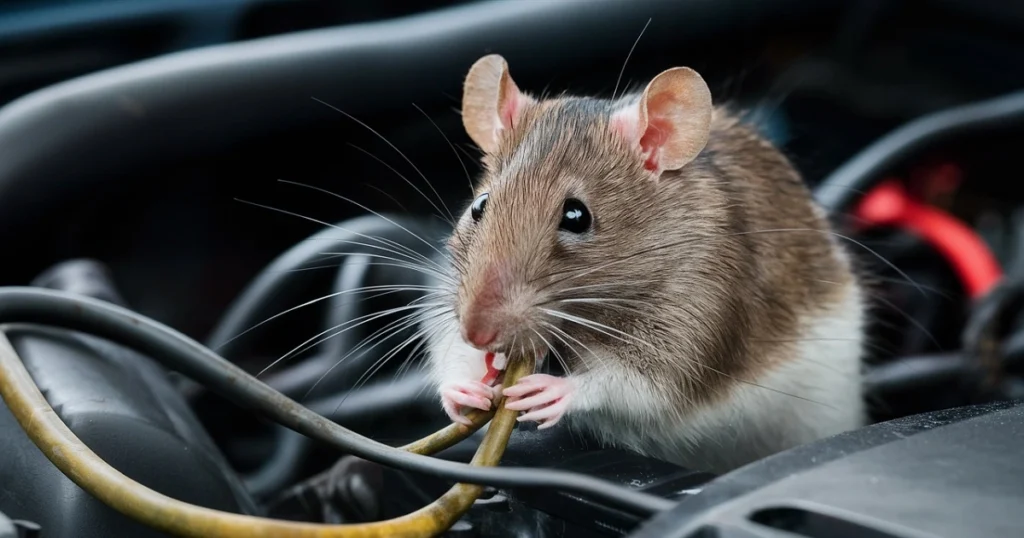
Rats exhibit specific behaviors and preferences that can lead them to enter vehicles. Knowing these behaviors and the common entry points can help effectively address a rat inside a car dashboard.
Rats seek shelter, food, and safety, making cars appealing. They may be attracted to food remnants from snacks or takeout left in the vehicle. Additionally, the warmth of the engine bay can provide a cozy environment, especially in colder weather.
Rats are also instinctively curious and may explore vehicles out of habit. A parked car can seem like an ideal nesting spot away from predators. If a nearby food source or a nesting opportunity exists, rats are likelier to venture inside.
Rats can enter cars through several openings. Common entry points include:
Paying attention to these areas can help prevent an infestation. Sealing these entry points is crucial in keeping rats out. Regular inspections and clean interiors can further discourage them from taking refuge in vehicles or garages.
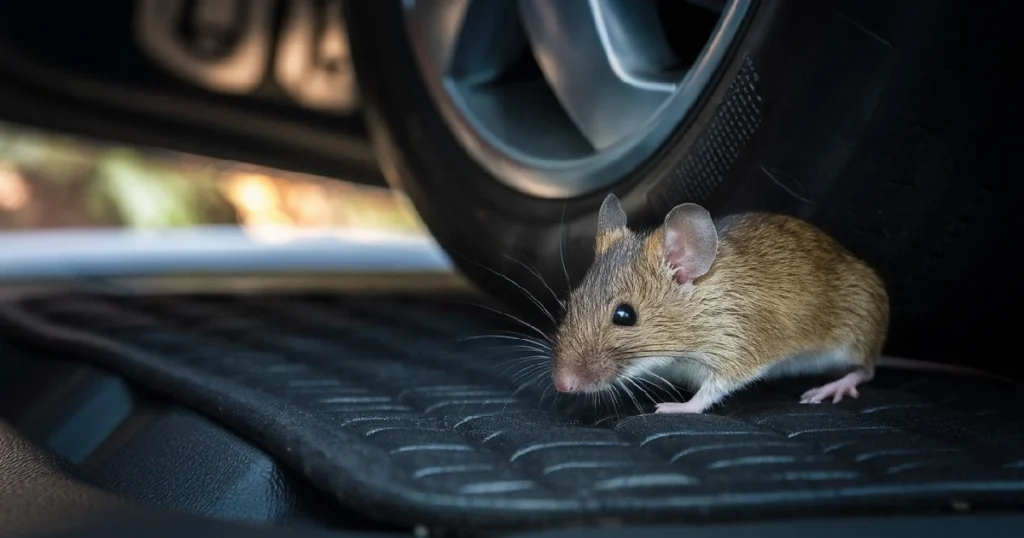
Taking proactive steps can significantly reduce the chances of a rat entering a car dashboard or garage. Employing effective methods to secure environments and maintain vehicles is essential.
To rid a rat from a car, start by securing access points in the garage. Rats can squeeze through small openings, so it’s crucial to seal gaps around doors, windows, and vents. Use steel wool or caulk to fill any holes larger than a quarter of an inch.
Regularly examine garage spaces and declutter to eliminate potential nesting sites. Store items in plastic containers with tight-fitting lids rather than cardboard. Consider strategically placing traps or deterrent devices to catch any rodents wandering in.
In addition, ensure that trash bins have secure lids. A clean and organized garage minimizes attractants and makes it less inviting for rats.
Keeping a vehicle clean helps to deter rats. Regularly remove food debris and trash from the interior and trunk. Rats are attracted to the smell of food, so vacuuming the car frequently is essential.
Perform routine inspections of the vehicle to identify potential entry points. Check under the hood, around the tires, and within the wheel wells for nests or signs of rodent activity. Using airtight containers for any tools or equipment stored in the vehicle can also reduce food source access.
Consider parking in a well-lit area and using vehicle covers less hospitable to rodents. Regular maintenance also reduces the likelihood of unwanted guests settling into the car dashboard.
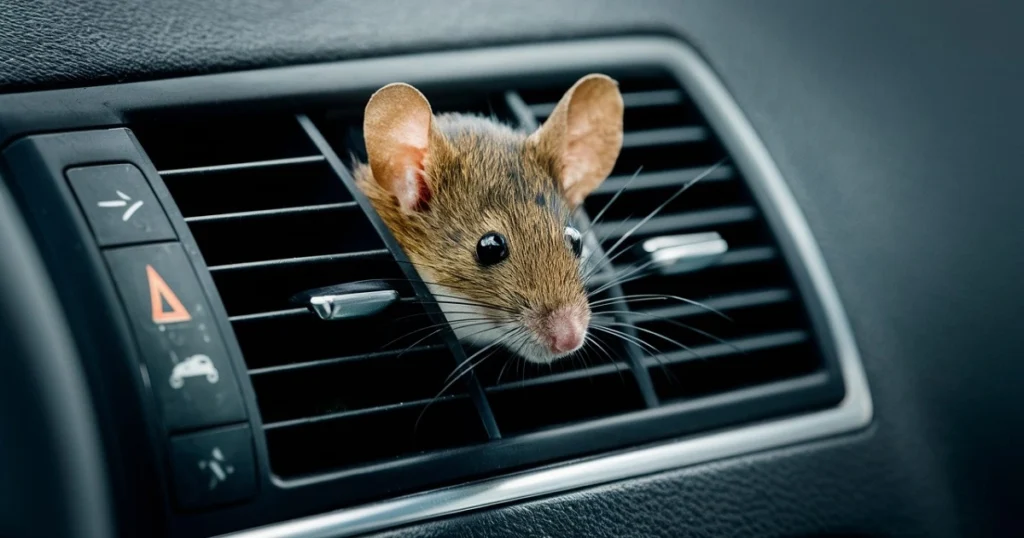
Taking the right steps is crucial when addressing a rat in the car dashboard. Immediate actions can minimize potential damage and ensure personal safety.
Before attempting to remove a rat from the dashboard, it is vital to take safety precautions. First, ensure the vehicle is parked safely, away from traffic.
Wear gloves to avoid direct contact with the rat or droppings, which may carry diseases. Consider using a mask to prevent inhalation of harmful particles.
Having a flashlight ready to see inside the dashboard may be beneficial. To avoid unexpected interactions, keep pets and children away from the vehicle. Being prepared can create a safer environment for the individual and the animal.
Locating the rat within the car dashboard requires systematic observation and patience. Listen for unusual sounds, such as scratching or squeaking, that may indicate the rat's position.
A flashlight can help illuminate dark areas within the dashboard. Checking under the steering column and around fuse boxes is critical, as rats may hide in these locations.
Another effective technique is to use bait, such as peanut butter, to attract the rat to a visible area. Be cautious when approaching the area with bait.
A stethoscope can also help pinpoint the rat's location by amplifying sounds. This method allows for a more targeted approach when deciding how to get a rat out of your car dashboard.
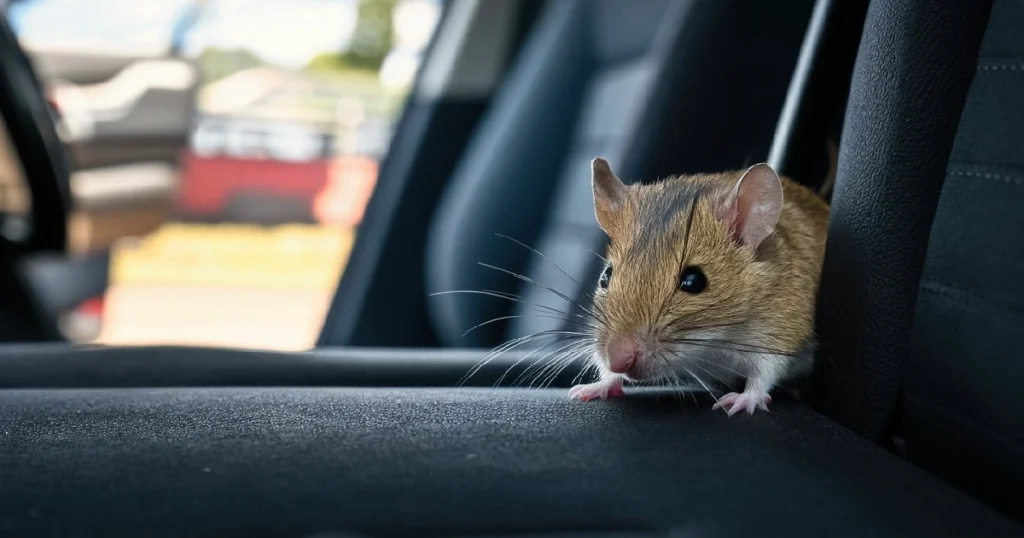
Getting a rat out of a car dashboard requires effective techniques and knowledge. This section discusses professional pest control solutions and do-it-yourself methods to address the issue.
Hiring a pest control expert is often the most efficient way to rid a rat from a car. These professionals possess the necessary experience and tools to handle the situation safely and effectively.
Services typically include:
Professionals understand the risks involved, including potential damage to the car and health concerns from nesting materials. They also provide advice on preventing future access points.
Several do-it-yourself methods can help those who prefer a hands-on approach. Care must be taken, however, since attempting to remove a rat without the right techniques may lead to injuries.
Key steps include:
Always wear gloves and take precautions while handling traps. If these methods do not yield results, contacting a professional may be necessary.
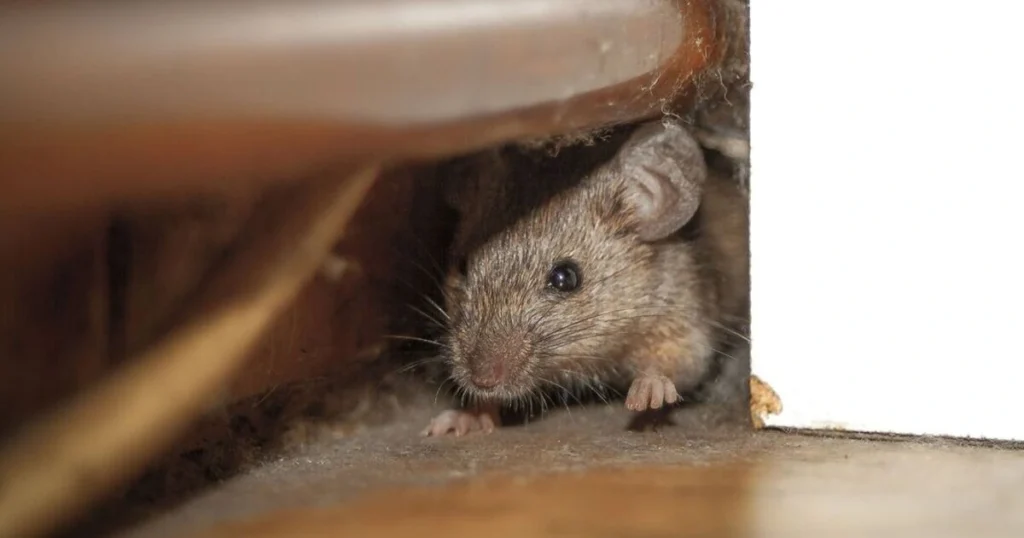
After a rat is removed from a car dashboard, it's essential to thoroughly clean and disinfect the area. Additionally, preventing future infestations involves taking specific proactive measures.
Interior cleanliness is critical after a rat removal. Start by removing any debris left behind. Vacuum the dashboard and surrounding areas to eliminate fur, droppings, or nesting material. Pay close attention to hard-to-reach spots.
Next, disinfect surfaces using a solution containing at least 10% bleach or a commercial disinfectant specifically labeled for sanitizing. Spray the disinfectant on surfaces and let it sit for a few minutes before wiping them down. Ensure ventilation by opening windows or doors, as the smell can be overpowering.
If necessary, use a steam cleaner for upholstery. Dispose of any contaminated materials in a sealed bag to prevent lingering odors and potential health hazards.
Addressing potential entry points is vital to avoiding a recurrence. Inspect the underside of the vehicle for openings or gaps. Seal any cracks or holes to ensure no other pests can enter.
Maintaining a clean car environment is also crucial. Remove food debris and trash, as these attract rodents. Consider strategically placing rodent deterrents around the vehicle, such as peppermint oil or commercially available repellents.
Regular check-ups can alert owners to possible infestations before they occur. For additional assistance, contact a professional service like Critter Stop, which can provide tailored solutions. Critter Stop has a fantastic reputation and online customer reviews because it provides high-quality work and great customer service. Contact them at (214) 234-2616 for a free inspection and professional advice on wildlife removal.
This section addresses common inquiries regarding effective strategies for removing a rat from a car dashboard. Specific techniques, tools, and precautions are outlined to ensure a safe and efficient process.
The safest methods include setting up traps designed for small rodents. Check the traps frequently to minimize stress on the animal. Food bait is also effective in enticing the rat out.
Avoid using harsh tools to remove a rat without damaging the interior. A flashlight can help locate the rat and coax it out. Gentle tapping or soft sounds may persuade the rat to move without causing harm to the vehicle.
Using a flexible grabbing tool can be effective for rats hiding in vents. A rat-specific trap placed near the vent openings may also work. Ensure access points to the vents are closed off after the removal to prevent re-entry.
Essential tools include humane traps, gloves, and a flashlight. A long-reach grabber can help remove rats from tight spaces. Sealing entry points and using deterrent sprays also help prevent future infestations.
First, remove all food sources and clutter to rid a vehicle of rats. After removal, clean surfaces with a disinfectant to eliminate odors. It is crucial to also inspect for droppings and nests for thorough sanitation.
The preferred method is to use humane traps. Place the trap inside the dashboard area with bait to attract the rat. Release the rat in a suitable location away from the original site to ensure a humane removal.
Visit our Critter Library and learn more about our furry friends